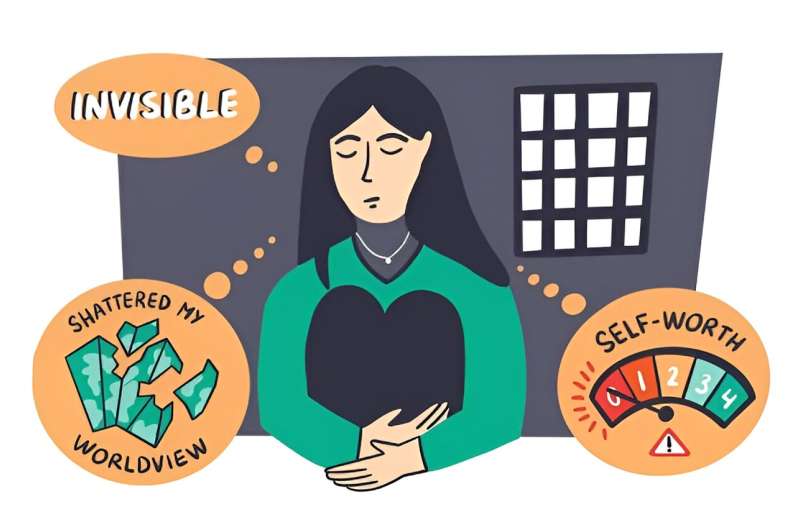This article has been reviewed according to Science X's editorial process and policies. Editors have highlighted the following attributes while ensuring the content's credibility:
fact-checked
trusted source
proofread
Report reveals extent of discrimination faced by patients with energy limiting conditions

A new report by researchers at the University of Liverpool, Liverpool Hope University and Disabled People's Organization Chronic Illness Inclusion reveals the extent of discrimination faced by women, trans men, non-binary and gender nonconforming people with Energy Limiting Conditions (ELCs) and calls for widespread improvements to the health care and support they receive.
Energy limiting conditions (ELCs) refers to long-term health conditions in which energy impairment and debilitating fatigue are key symptoms. This includes many autoimmune, neurological and musculoskeletal diseases, ME/CFS, fibromyalgia and, since the COVID-19 pandemic, also long COVID.
Launched today, the report highlights the experiences and impact of disbelief and discrimination within health and social care on people with ELCs, and makes a series of recommendations to address the issue and improve care.
The report is accompanied by an animation which brings people's stories to life, and a medical education toolkit to raise awareness among trainee health professionals.
Discrimination
The report is underpinned by research from the Disbelief and Disregard: Gendered Experiences of Health care for People with Energy Limiting Conditions project that analyzed 962 responses to a survey carried out by Chronic Illness Inclusion.
Their analysis found that 75% of respondents with a range of different ELCs felt they were not listened to or believed by health or care professionals and this experience of disbelief and disregard led to damaged self-esteem and self-confidence, and has knock on effects in relation to work, education, welfare and benefits, creating a cycle of inequality.
The data also revealed widespread reporting of delayed or incorrect diagnosis by participants. Many respondents felt they experienced medical sexism which was exacerbated for those who also experienced ageism, racism, homophobia, transphobia and fatphobia.
Recommendations
A series of accompanying briefing papers make a number of recommendations to improve the care and support that health and medical professionals provide:
- ELC patients need to be listened to and believed and the harms done to the health and well-being of their conditions needs to be taken seriously by health care and medical professionals.
- Training for all health, social care, and welfare professionals needs to include information about ELCs and be based on up-to-date research and the lived experiences of patients.
- Improvements to patient and public involvement frameworks to ensure that ELC patients play a role in research and policy decision making.
- Patient pathways and quality of care needs to include the provision of appropriate treatment or symptom management and support systems need improving to ensure people with ELC get the support they need to access welfare, social care, employment and education.
Dr. Bethan Evans, a senior lecturer in human geography with the University's Department of Geography & Planning, and co-director of the Center for Health, Arts, Society and Environment, is the research lead for the project and co-author of the report and policy briefings.
Dr. Evans said, "People with ELCs are a large, overlooked section of the disabled population and one that is growing rapidly. Our research reveals the extent of gender based discrimination that people face when trying to access supportive health and social care.
"The disbelief and disregard they face impacts every aspect of people's lives and contributes to the production and exacerbation of health inequalities.
"Our project aims to raise awareness of the barriers to care experienced by people with ELCs and to highlight specific actions to address the issue and improve care.
"We urge medical professionals to take seriously the harms done to the health and well-being of people living with ELCs and to improve these experiences through listening to and believing patients and learning from and responding to lived experiences of ELC with respectful and effective care."
The report and briefing papers were launched at a webinar on Thursday, 14 September, alongside a short animation produced by Stacy Bias of Your Story Studio and Ell Rose of Four Foot Eleven.

















